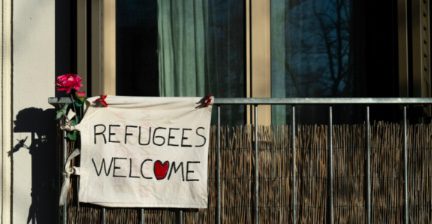
Hostile U.K. migration policies need overhaul
Hundreds of refugee and human rights organizations have called on Prime Minister Keir Starmer to transform the U.K.’s migration policy, urging a departure from the previous government’s controversial and hostile approaches. This plea comes as Starmer marked his first full day as Prime Minister, confirming the termination of the Rwanda deportation scheme, criticizing it as a “gimmick” that was “dead and buried before it started.”
In an open letter shared with The Guardian, 300 civil society organizations and 534 individuals working with migrants have presented a detailed blueprint for asylum reform. The letter criticizes the current policy as “fundamentally broken” and proposes nine key demands to signal a shift in one of the U.K.’s most contentious policy areas.
The plea for humanity
The letter states,
“We are writing to you as grassroots organisations and individuals grounded firmly in our communities across the UK. We are proud to welcome people seeking safety. For years, we have stepped in to support people who have been targeted and brutalised by hostile policies. We are now calling on your government to take a new approach: protecting people seeking safety, rather than punishing them for political gain.”
Their demands encompass several critical changes:
- Restore the right to seek asylum in the U.K. in line with international law by repealing the Illegal Migration Act and the Nationality and Borders Act.
- Open safe routes for people seeking asylum to reach the U.K., including providing visa routes, enabling family reunification, and rebuilding refugee resettlement programs.
- House asylum seekers in communities, not camps, closing institutional accommodations like barracks, barges, hotels, and hostels, which have been criticized for causing lasting harm and incurring significant taxpayer costs.
- Restore the right to work for asylum seekers within six months of arrival, allowing them to rebuild their lives with dignity and contribute economically.
